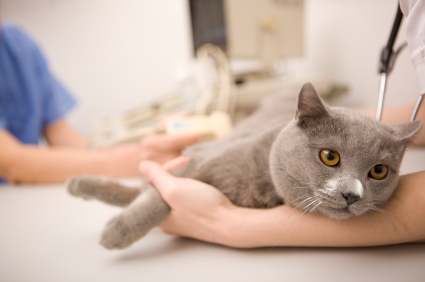Overview
You, Your Cat, & Parasites,
 Cat owners know the joy that these loving creatures bring to our lives. Because cats are independent by nature, they can be easier to care for when it comes to sharing our homes with them. Therefore, it’s important to both you and your cat to keep it healthy and free of parasites.
Cat owners know the joy that these loving creatures bring to our lives. Because cats are independent by nature, they can be easier to care for when it comes to sharing our homes with them. Therefore, it’s important to both you and your cat to keep it healthy and free of parasites.
Monitoring your cat for any changes in its behavior, appetite, and water consumption and regular visits to your veterinarian are necessary to maintaining the well-being of your cat. Your veterinarian is there to diagnose, treat, and prevent parasites, such as fleas and worms, that not only affect your cat, but the health of you and your family.
It is relatively common for a cat to become infected with an internal or external parasite at some point in its lifetime. Parasites can affect your cat in a variety of ways, ranging from a simple irritation to causing life-threatening illnesses if left untreated. All parasites, particularly internal parasites (worms), can carry and transmit diseases to people.
By following your veterinarian’s recommendations and having your pet tested for parasites annually, you can protect your cat and your family from these potentially harmful parasites all year long. Click on the parasite links to the right for information on the symptoms they cause, where they are located, how they affect your cat, the health risks to humans, and prevention tips.
 Parasite Control Recommendations for Cats
Parasite Control Recommendations for Cats
The use of year-round heartworm and broad-spectrum parasite medications, as well as appropriate flea and/or tick products, is the foundation of an effective parasite control program for your cat.
In addition, the following steps can be part of a proactive program to help keep your cat healthy and parasite-free:
- Have your cat examined at least annually by your veterinarian and include a complete history.
- Have heartworm tests conducted periodically.
- Provide pets cooked or prepared food (not raw meat) and fresh, potable water.
- Conduct fecal examinations 2 to 4 times during the first year of life and 1 to 2 times each year for adults, depending on the pet’s health and lifestyle factors.
- Administer anthelmintic treatment to puppies and kittens starting at two weeks of age repeating every two weeks until 8 weeks of age, followed by monthly treatments as a preventive.
- Also deworm nursing mothers (queens) along with their kittens.
If an optimal year-round parasite prevention program is not followed:
- Deworm kittens biweekly from 2-8 weeks of age and then monthly until 6 months of age.
- Have fecal exams conducted 2 to 4 times a year for adult cats.
- Tailor parasite prevention programs to your cat based on parasite prevalence and lifestyle factors.
Did you know?
- You should have your cat examined at least yearly or as recommended by your veterinarian.
- Cats need heart worm tests too! They should be conducted periodically.
- Your veterinarian will conduct fecal examinations 2 to 4 times during the first year of life and 1 to 2 times each year for adults, depending on the pet’s health and lifestyle factors.
Learn More about Specific Parasites
- Overview
- Coccidia
- Dandruff
- Ear Mites
- Fleas
- Heartworms
- Hookworms
- Mange
- Roundworms
- Tapeworms
- Ticks
- Toxoplasmosis
Ask Your Veterinarian
Learn how to prevent parasites in your kitten or cat. It is almost always easier and more cost-effective to prevent parasites than to treat them once your cat has them. It is also safer for you and your family to have a parasite-free pet
Learn More